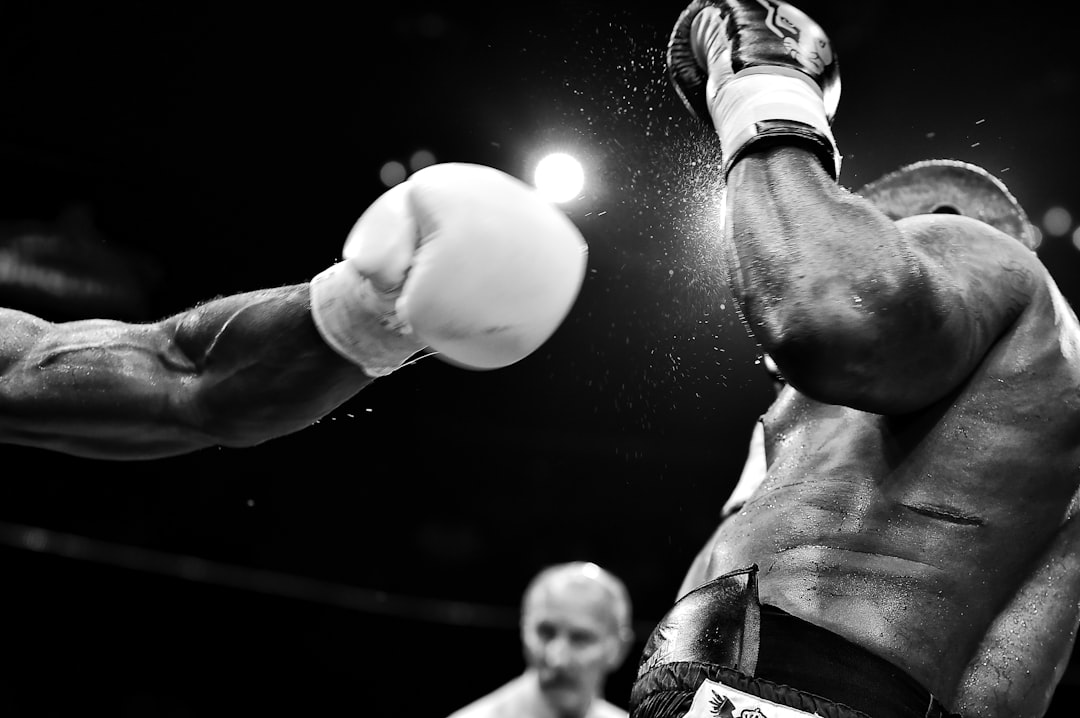China and the US are in a digital innovation boxing match. The US is placing its bets on lethargic big tech while China is betting on a new generation of untested agile startups. So who do you think will win?

The US’s big tech companies are now as bloated and lumbering as the companies they once mocked with slogans like “Don’t be evil.” Remember that one? Innovation in these tech giants is now limited to buying out the latest upstart, assimilating their tech, jettisoning their culture, and perhaps one day using that tech on a new button on their sclerotic offerings.
Sound harsh? When TikTok is the world’s number one app, and Meta boldly proclaims it has to outcompete a Chinese competitor in its home market –that’s an earthquake. Yet most shrug it off as though it’s no big deal. Instead, many say, “It’s a one-off; China got lucky. After all, they don’t innovate over there, just copy.”
It’s hard to put into perspective how serious TikTok’s ascension to No. 1 app is for the US’s big tech. Many see it as the “canary in the coal mine” a warning that conditions aren’t right.
Meanwhile, as the EU pursues meaningful antitrust measures like the digital markets act against big tech companies, Washington is listless and “punch drunk.” Washington is like an elderly boxer looking at pictures of his younger self; nostalgic about how he once was powerful enough to take on the Bell System with antitrust and win. The fighting spirit is no longer.
In Washington, the mere whisper of the word “antitrust” brings howls from well-paid lobbyists and former senior government officials working for big tech. All parrot the same big tech party line as though it was Beijing in 1973: “Antitrust measures are a gift to China.”
The irony of course is that every move for anti-trust regulation on big tech is met with howls that China will get ahead. China is already ahead in certain segments and acheived this because once agile tech companies became monopolies with no need to rush innovation to market.
China’s war against big tech remains bloody and poorly executed, scaring away precious foreign investment that now, in the throw of COVID, could have provided a cushion against difficulty. Still, the overarching reason for China’s tech crackdown was the realization that China’s tech monopolies were following the US’s model and killing off competitors to ensure an absolute monopoly.
As I have written repeatedly, one of China’s primary goals in its bloody crackdowns was to ensure that smaller companies have room to grow and innovate. The days when China’s tech giants could simply consume smaller players or worse, crush them through anti-competitive discounts or other dirty practices is over.
At the same time, China is using anti-trust to clip the wings of big tech it is deploying new forms of raising capital such as the new Beijing Exchange which is designed specifically for “innovation-oriented” micro, small, and medium-sized enterprises to show their commitment. Also look to Beijing’s “Little Giants” program with its goal of creating 10,000 smaller innovators and government sponsored bank “re-lending facilities” designed to nurture small innovators.
China is far from perfect but government support of innovation and smaller companies is impressive. Innovation is a national priority and a primary motivator driver for China’s antitrust campaign.
Meanwhile, in the US, big tech monopolies create an atmosphere where innovators simply hope to be bought out because the alternative is not making it big but being crushed.
Exaggeration? Not in the least when you can read all about big tech’s “kill zones.” The not-so-subtle name for the way that tech giants acquire smaller competitors to squash competition, crowd out alternative investments and lock in market dominance.
Big Tech is full of dirty tricks in both China and the US. Neither is spared from behavior that is not just anti-competitive but downright unsavory. Smaller start-ups in both nations face stiff resistance from big tech who will either buy them out, copy or crush them.
So we are relying solely on big tech for what is one of the US’s key competitions. It's as though the government is outsourcing innovation to big tech rather than promoting smaller innovators and creating the conditions innovation needs to thrive.
We shouldn’t be surprised. This week, we watched as the world’s richest man purchased Twitter in a widely proclaimed victory for free speech. Free speech was just outsourced to big tech because the government couldn’t be bothered.
And now we are relying on big tech to win the innovation competition with China?
Thanks so much for reading!
More of my writing, podcasts, and media appearances here on RichTurrin.com
Contact me Here
Rich Turrin is the international best-selling author of "Cashless - China's Digital Currency Revolution" and "Innovation Lab Excellence." He is an Onalytica Top 100 Fintech Influencer and an award-winning executive previously heading fintech teams at IBM following a twenty-year career in investment banking. Living in Shanghai for the last decade, Rich experienced China going cashless first-hand. Rich is an independent consultant whose views on China's astounding fintech developments are widely sought by international media and private clients.
Please check out my books on Amazon:







